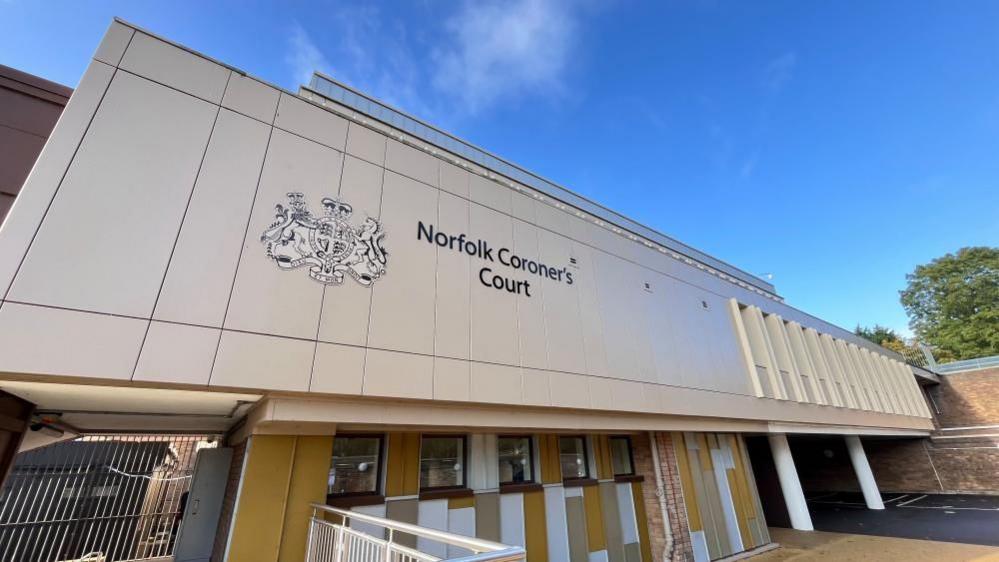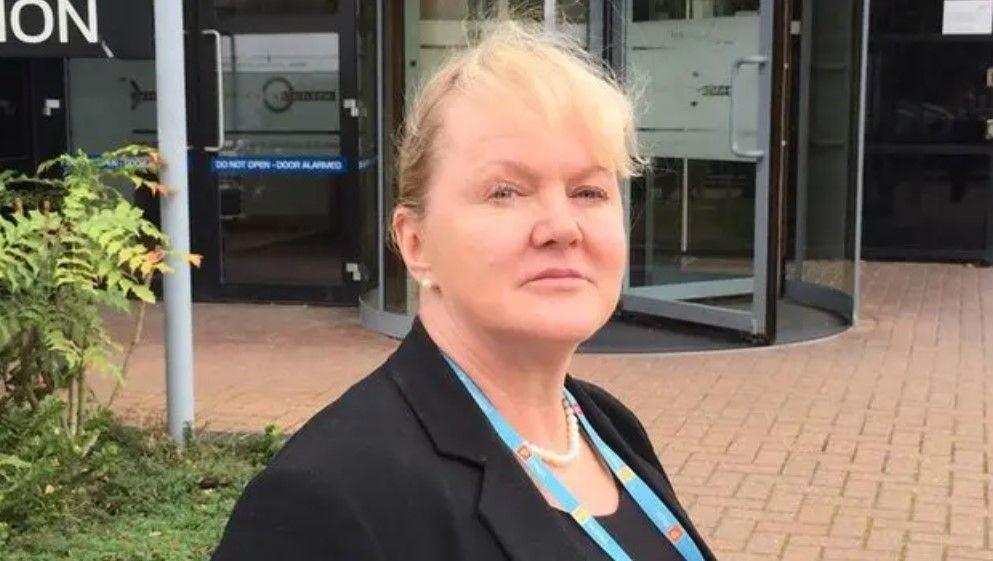Patient's heart was not injected with morphine

Coroner Yvonne Blake said Nicola Price was not given an injection of morphine direct to her heart
- Published
A coroner has dismissed claims made by the family of a 57-year-old woman that she was given an injection of morphine direct to her heart.
Nicola Price, of Wymondham, had flu in December 2023 and accidentally overdosed on paracetamol, an inquest heard.
Norfolk coroner Yvonne Blake heard Miss Price also had several medical conditions, which contributed to her death by multiple organ failure on 5 January.
Her brother and mother had claimed medics could have done more to save her life but Mrs Blake dismissed claims she had had a morphine injection to her heart, having heard evidence she had been given the sedative to her hand or wrist, and concluded she died of natural causes.
Miss Price's mother Beryl said she and her daughter had been feeling unwell with head colds on 29 December, but had not realised it was flu.
"She told me she had taken some paracetamol and cold and flu remedy and tried to get her temperature down," she said.
Paramedics and A&E clinicians at the Norfolk and Norwich University Hospital said in evidence at the coroner's court they had not been told of Miss Price's paracetamol consumption and were not alerted to a risk of overdose, instead focusing on her breathing difficulties.
Beryl Price added that a few days later medical staff "said she was too poorly and there was nothing they could do. I don't understand why they didn't try harder. She shouldn't have died".
'Chance of further treatment'
William Price, the brother of Nicola Price, said in a witness statement: "I asked if she could have dialysis, but if they took her off the ventilator that she would most likely die in the corridor. I asked the doctor if Nicola would die, and they said she would.
"They gave her morphine to stop her heart and they took her oxygen away and it took six hours for her to die. I don't know why they didn't give her the chance of further treatment."
But doctors and paramedics said morphine was not administered directly to Miss Price's heart, but instead to her hand or wrist via a pump.
The paramedics and A&E clinicians said had they known there was a risk of paracetamol overdose, they would have treated it immediately.
Instead they prioritised her medical need as difficulty breathing with suspected chest infection and her known medical conditions.
It was not until the next day that Dr Christopher Atkins, a respiratory consultant, said he was told Miss Price had taken one gram of paracetamol every four hours in addition to cold and flu medication.
This caused damage to her liver and kidneys, and while blood tests showed her liver function improved through two sessions of dialysis, her kidneys showed signs of necrosis.
It was heard the impaired liver and kidney function and impact of her respiratory illnesses would have exacerbated pressure on her organs and despite being given oxygen, she had felt drowsy - a sign insufficient oxygen was reaching her brain, the inquest heard.

Coroner Yvonne Blake said she had asked all of the questions posed to her by Miss Price's family
The coroner asked Dr Charelle Manning, a gastroenterologist at the hospital, a series of questions on behalf of the dead patient's family.
Asked whether Miss Price had been deemed too old for treatment, Dr Manning replied: "From an age perspective, no. But I assume the decision would have been taken in consideration of her general health."
Asked about whether there would have been an injection into her heart to stop it beating, Dr Manning said: "No. In palliative care morphine would be given subcutaneously, but not to stop the heart."
Summing up, Mrs Blake added: "They do not [do that] because that would be murder or manslaughter. That definitely does not happen.
"Miss Price wasn't going to recover. Her family wondered why she was taken off oxygen - that was because it [to remain on oxygen] would have prolonged things.
"Sadly Miss Price did die on 5 January some hours after her oxygen was removed. It was not based on her age, but on her frailty.
"I have asked all the family's questions and I am satisfied that Miss Price was adequately treated.
"But her other problems did not resolve and she ultimately developed organ failure.
"Nicola Price has died of natural causes."
Follow Norfolk news on BBC Sounds, Facebook, external, Instagram, external and X, external.